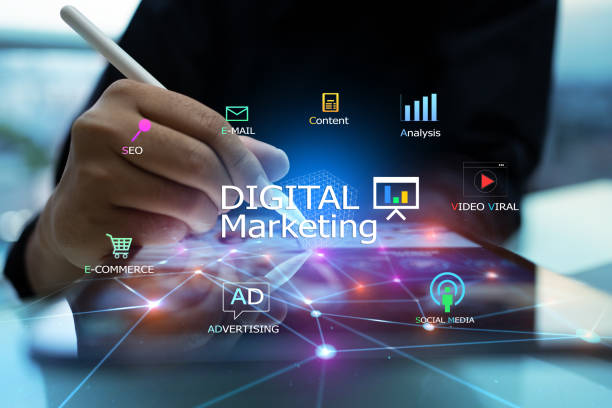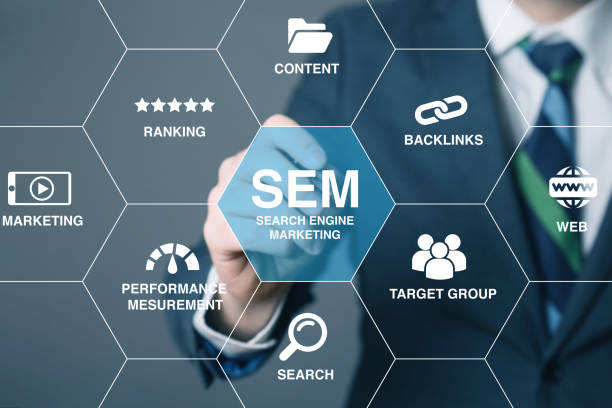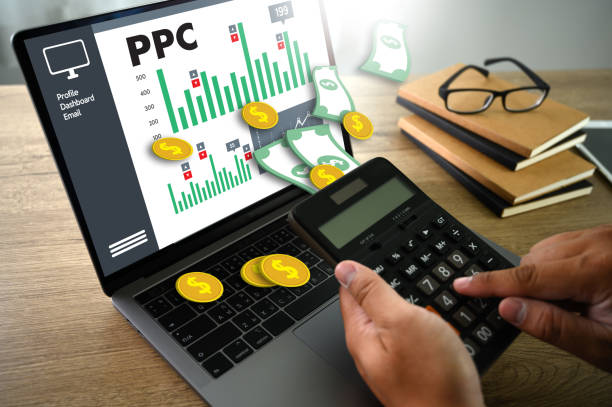Pay-per-click (PPC) marketing is one of the most effective ways to drive traffic to your website. By bidding on specific keywords, businesses can display ads in search engine results, social media platforms, and other sites across the internet. PPC is a direct way of paying for visibility, where advertisers pay only when someone clicks on their ad. The world of PPC marketing offers a fast and measurable advertising method, providing businesses the ability to reach their target audience efficiently. With the right strategy, PPC can significantly improve a business’s visibility and generate more qualified leads.
Definition of PPC Marketing
PPC is a form of online advertising where businesses pay a fee each time their ad is clicked. The idea behind PPC is simple: you only pay when your ad is clicked, so it’s a cost-effective way to buy website visits rather than earning them organically. The most common PPC model is search engine advertising, where businesses bid on keywords relevant to their products or services.
How Does PPC Work?
The core of PPC is bidding. Advertisers select keywords relevant to their business and set a bid, indicating how much they are willing to pay for a click. When a user searches for a keyword or phrase that matches the advertiser’s chosen terms, the search engine displays relevant ads. If the user clicks on the ad, the advertiser pays the set price.
PPC platforms, like Google Ads and Bing Ads, use an auction system to determine which ads show up for certain searches. The highest bidder doesn’t always win; the quality of the ad and landing page also play a significant role in determining the ad’s position.
Importance of PPC in Digital Marketing Strategy
PPC is a key player in digital marketing. It allows businesses to generate immediate traffic, reach potential customers actively searching for their services, and even target specific demographics. PPC campaigns are also measurable and provide real-time results.
Suggested Posts:
- Location-Based and Specific PPC Services
- Tools, and Resources for PPC
- Strategies For Successful Campaign

Benefits of PPC Marketing
- Immediate Results
Unlike SEO, which can take months to show results, PPC provides immediate visibility. As soon as a campaign is launched, the ads are visible to users, leading to immediate traffic. - Targeted Traffic
PPC allows you to target highly specific keywords, which means the traffic you attract is highly relevant to your business. You can also use advanced targeting options, such as demographics, device, location, and time of day, to narrow down your audience. - Cost Control
One of the key advantages of PPC is that it offers cost control. Advertisers can set daily or lifetime budgets and only pay when someone clicks on their ad. This provides full transparency over advertising spend. - Brand Awareness
Even if a user doesn’t click on your ad, simply seeing your ad in the search results increases your brand’s visibility. This can help build brand recognition, even if the user doesn’t immediately convert. - Measure Success Easily
With PPC campaigns, everything is measurable. You can track clicks, conversions, and ROI to determine which keywords and ads are performing well. This data allows you to make adjustments and optimize your campaigns.
Which is Better SEO vs PPC?
Both SEO (Search Engine Optimization) and PPC play vital roles in a digital marketing strategy, but they serve different purposes and provide different results.
What is SEO?
SEO is the practice of optimizing your website to rank higher in search engine results pages (SERPs) organically. It involves strategies such as keyword optimization, creating quality content, obtaining backlinks, and improving site speed. Unlike PPC, SEO does not require payment for each click. Instead, it focuses on earning traffic over time.
Key Differences PPC vs SEO
- Cost
SEO is cost-effective in the long run because you don’t pay for clicks. However, it requires an investment in time and effort. PPC, on the other hand, requires a financial investment upfront to pay for each click. - Speed of Results
SEO is a long-term strategy, and it may take several months to see results. In contrast, PPC generates immediate results and can drive instant traffic to your website. - Traffic Quality
Both SEO and PPC attract high-quality traffic, but PPC offers better control over targeting. You can control who sees your ads based on demographics, behavior, and location. - Visibility
SEO helps you earn a spot in organic search results, while PPC helps you earn a spot in paid search results. With PPC, you can also appear on social media platforms and third-party websites, extending your reach even further. - Sustainability
When done correctly, SEO can lead to sustained organic traffic without ongoing costs. However, PPC requires continual spending. If you stop paying for ads, the traffic will stop.
When to Use SEO and When to Use PPC?
- Use SEO when you want to build a long-term, sustainable presence and reduce reliance on paid traffic.
- Use PPC when you need immediate results, especially for seasonal promotions, product launches, or targeting specific keywords.

Related FAQs
1. How much does it cost to run a PPC campaign?
The cost of a PPC campaign depends on various factors, including the platform used, the competitiveness of your target keywords, and your bidding strategy. On average, businesses pay between $1 and $2 per click on Google Ads, but this can vary widely.
2. Can PPC help my SEO efforts?
Yes! While PPC and SEO are different strategies, they can complement each other. For example, running PPC ads for high-performing keywords can provide insights into which terms are converting well, which can help inform your SEO efforts.
3. How can I optimize my PPC campaign?
You can optimize your PPC campaign by choosing the right keywords, writing compelling ad copy, optimizing your landing pages, and continuously analyzing and adjusting your campaigns based on performance data.
4. Is PPC suitable for all businesses?
PPC suits most businesses, but it works particularly well for companies offering time-sensitive products or services, such as sales, limited-time offers, or local businesses targeting specific geographic areas.
5. How do I know if PPC is right for my business?
PPC is ideal if you need immediate visibility and can manage an advertising budget. It’s also a good choice if you want to target specific keywords or demographics, or if you’re looking to drive traffic during peak seasons.
Key Takeaways
Pay-per-click marketing is a powerful tool that can significantly enhance your digital marketing strategy. By allowing you to bid on targeted keywords, PPC enables you to reach your audience quickly and efficiently. While it requires an upfront investment, the measurable results and immediate visibility make it an attractive option for businesses of all sizes. When comparing PPC to SEO, both strategies offer distinct advantages. While SEO is a long-term, organic approach that builds sustainable traffic, PPC offers faster, more targeted results. The best approach often combines both, ensuring that your business benefits from both immediate and long-term traffic sources.
- PPC is an online advertising model where advertisers pay per click on their ads.
- It is an effective tool for driving immediate traffic and increasing visibility.
- PPC allows for highly targeted advertising based on keywords, location, device, and more.
- SEO and PPC each have their strengths, and using them together often provides the best results.
- Always monitor and optimize your PPC campaigns for better performance and ROI.
Tip:
With this comprehensive overview of PPC marketing, you’re equipped with the knowledge to start implementing or optimizing your campaigns. Whether you’re just getting started or looking to refine your strategy, understanding how PPC fits into your overall digital marketing plan is crucial for success.
